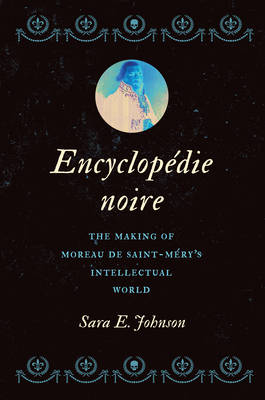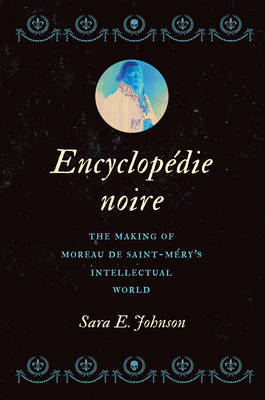
- Afhalen na 1 uur in een winkel met voorraad
- Gratis thuislevering in België vanaf € 30
- Ruim aanbod met 7 miljoen producten
- Afhalen na 1 uur in een winkel met voorraad
- Gratis thuislevering in België vanaf € 30
- Ruim aanbod met 7 miljoen producten
Zoeken
€ 68,95
+ 137 punten
Omschrijving
If you peer closely into the bookstores, salons, and diplomatic circles of the eighteenth-century Atlantic world, Médéric Louis Élie Moreau de Saint-Méry is bound to appear. As a lawyer, philosophe, and Enlightenment polymath, Moreau created and compiled an immense archive that remains a vital window into the social, political, and intellectual fault lines of the Age of Revolutions. But the gilded spines and elegant designs that decorate his archive obscure the truth: Moreau's achievements were predicated upon the work of enslaved people and free people of color. Their labor afforded him the leisure to research, think, and write. Their rich intellectual and linguistic cultures filled the pages of his most applauded works. Every beautiful book Moreau produced contains an embedded story of hidden violence.
Sara Johnson's arresting investigation of race and knowledge in the revolutionary Atlantic surrounds Moreau with the African-descended people he worked so hard to erase, immersing him in a vibrant community of language innovators, forgers of kinship networks, and world travelers who strove to create their own social and political lives. Built from archival fragments, creative speculation, and audacious intellectual courage, Encyclopédie noire is a communal biography of the women and men who made Moreau's world.
Sara Johnson's arresting investigation of race and knowledge in the revolutionary Atlantic surrounds Moreau with the African-descended people he worked so hard to erase, immersing him in a vibrant community of language innovators, forgers of kinship networks, and world travelers who strove to create their own social and political lives. Built from archival fragments, creative speculation, and audacious intellectual courage, Encyclopédie noire is a communal biography of the women and men who made Moreau's world.
Specificaties
Betrokkenen
- Auteur(s):
- Uitgeverij:
Inhoud
- Aantal bladzijden:
- 392
- Taal:
- Engels
- Reeks:
Eigenschappen
- Productcode (EAN):
- 9781469676913
- Verschijningsdatum:
- 14/11/2023
- Uitvoering:
- Hardcover
- Formaat:
- Genaaid
- Afmetingen:
- 158 mm x 242 mm
- Gewicht:
- 907 g

Alleen bij Standaard Boekhandel
+ 137 punten op je klantenkaart van Standaard Boekhandel
Beoordelingen
We publiceren alleen reviews die voldoen aan de voorwaarden voor reviews. Bekijk onze voorwaarden voor reviews.











